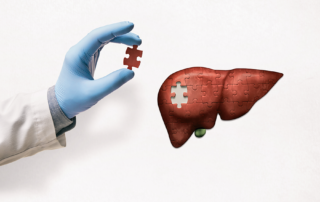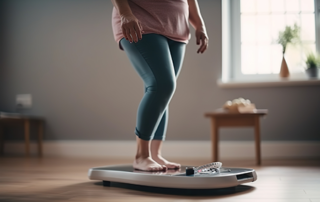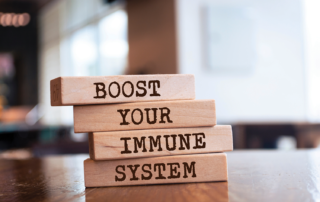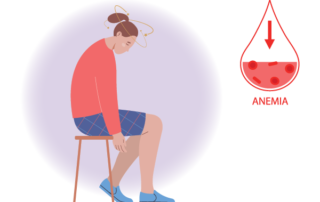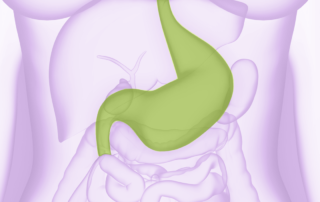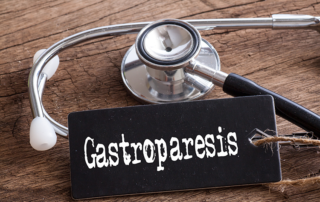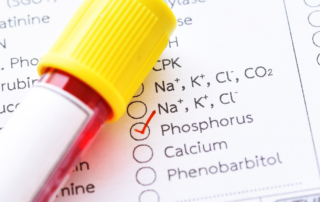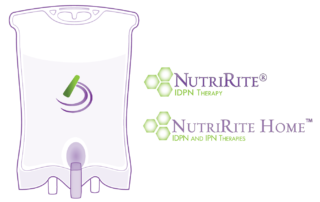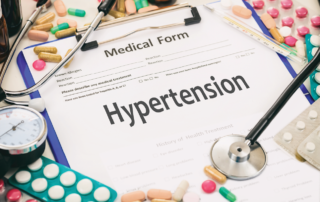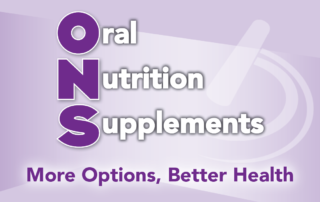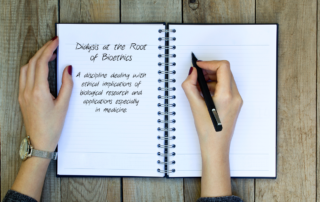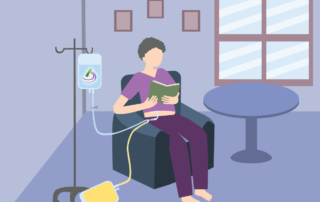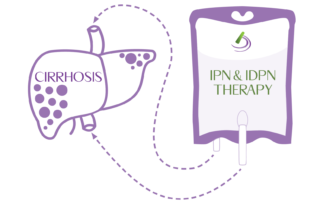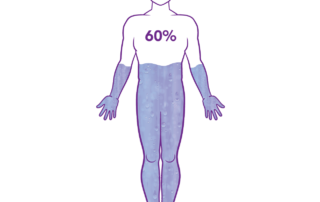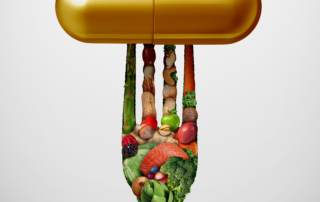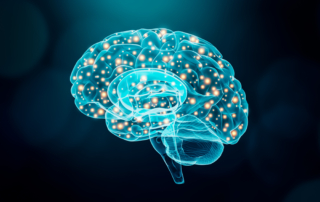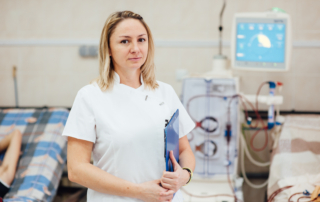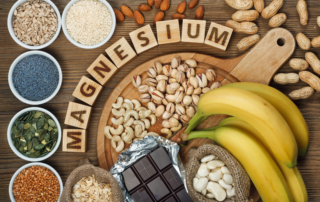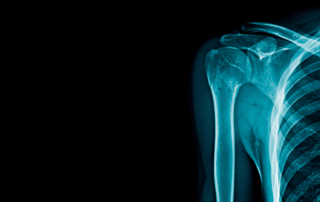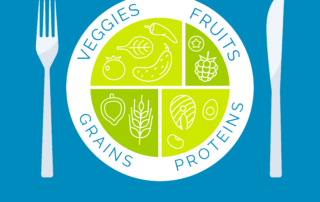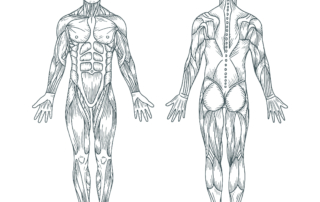Blog
Navigating the Challenges of BIA in Dialysis Patient Assessment
September is Malnutrition Awareness Month, and as Renal Dietitians we understand that the nutritional assessment of dialysis patients is among the most complex of any disease state. Bioimpedance Analysis (BIA) has gained traction as a valuable tool for assessing fluid balance and nutritional status. While BIA offers valuable insights into body composition and fluid distribution, offering a non-invasive, quick, and relatively easy way to assess a patient's nutritional status, it is crucial to recognize its challenges and limitations for dialysis patients. Understanding these can help healthcare professionals make informed decisions about integrating BIA into patient care. Understanding Bioimpedance Analysis [...]
Collaboration, Not Confrontation, to Address Nutrition Misinformation
Healthy eating often comes with its fair share of misconceptions. Today, with so much information from non-reputable and non-evidence-based sources, it’s easy to mix up sound advice with myths and misinformation about nutrition. These myths range from harmless misunderstandings to potentially dangerous misconceptions. For example, in this month’s PCA webinar we discuss several nutrition myths that come up in relation to thyroid health. Some common misconceptions include theories that patients with thyroid disorders need to avoid cruciferous vegetables or should adopt a gluten-free diet, neither of which is true. Inspired by the widespread nutrition information that exists today, we connected [...]
Beat the Heat this Summer
The national forecast for the US predicts this may be one of the hottest summers on record. Across the country heat waves and heat domes are expected to hit, meaning everyone will be looking for a way to stay cool. For a dialysis patient, this could mean reaching for more fluid than is recommended. It is well known that being fluid overloaded leads to many complications for people living with end-stage renal disease, and this contributes to poor quality of life, increased hospitalizations, and mortality risk. This is a great time to remind patients there are many ways to [...]
Tips for Supporting Liver Health
The liver is a large organ in the abdomen, the size of a football, that performs over 500 functions per day. It is defined both an essential organ, necessary for life, and a gland, which produces hormones and proteins for the rest of the body. To highlight a few things the liver is responsible for: Cleaning the body from toxins, including many types of drugs Regulating the amount of blood in the body as well as processes red blood cells and the hemoglobin they carry Metabolizing protein, fats and carbohydrates Producing bile, which breaks down fat Manufacturing substances necessary [...]
Help Women Take Charge
Every May in the United States the nation recognizes Women’s Health Month. The goal of this month is to empower women to prioritize their health and educate them on the steps they can take to improve their health. Empowering women who have chronic kidney disease and kidney failure can make all the difference in correcting some of the longstanding disparities observed between men and women. For example, when comparing men to women on dialysis, women have: Lower placement rates of arteriovenous fistulas (AVF) Higher hospitalization rates Higher 30-day readmission rates Worse anemia More malnutrition Worse quality of life Greater [...]
Measuring the Success of Intraperitoneal Nutrition: More than Numbers
As a Registered Dietitian Nutritionist (RDN), I had the pleasure of working with people on dialysis for many years. During this time, I witnessed many success stories for my patients on hemodialysis (HD) with intradialytic parenteral nutrition (IDPN). However, it was not until I began working with Patient Care America, where I collaborate with fellow RDNs to help them access dialysis-specific nutrition support for malnourished patients, that I got to hear of the remarkable outcomes that are possible for patients on peritoneal dialysis (PD) using intraperitoneal nutrition (IPN) therapy. As many of us reading this blog may already know, [...]
Effectively Collaborating with
the Interdisciplinary Team
Every patient in the healthcare system is part of a team, whether they know it or not. Behind the scenes of every appointment or clinic visit is a world of conversation and collaboration intended to support better health outcomes. Dietitians and nurses serve as critical components of many such interdisciplinary teams (IDT). In dialysis, effective collaboration with the team dietitian supports better patient outcomes. Dietitians are experts in dietary sodium and phosphate management, glycemic health, screening for and treatment of malnutrition, and so much more. If the dietitian voice is missing from the IDT collaboration, it means more patient [...]
Unintentional Weight Loss in ESRD Patients
How many times have you witnessed unintentional weight loss in your dialysis patients? Unfortunately, this is a common occurrence that is frequently overlooked and undertreated, especially in patients who are considered obese. I can’t tell you how many times, when I was working in dialysis clinics, nephrologists or mid-level providers discounted unintentional weight loss of an obese patient because, after all, the patient could stand to lose a few pounds. This is a very dangerous stance. Unintentional weight loss for any ESRD patient is something to be investigated further to help prevent more serious implications. Specifically for obese patients, [...]
Supporting a Patient Through a Weight Loss Journey
Drawing on my own experience as a registered dietitian (RD), I found counseling patients on weight loss to be difficult. As a clinician, I understand that weight loss may be necessary for patients who need to: Qualify for transplant Improve diabetes and cardiovascular health Improve overall quality of life Yet many patients struggle to lose weight and even more importantly maintain it. They may feel overwhelmed with additional kidney disease and/or diabetic dietary restrictions, or perhaps they recognize the need to lose weight but lack the motivation to get there. Food is often considered one of life’s simple pleasures [...]
Think Small for a Strong Immune Defense
During cold and flu season there are a few things that come to mind to protect ourselves from bacteria and viruses. Things like vaccines, regular handwashing, masking in public spaces, and maybe reaching for the echinacea or elderberry. But to boost our immune systems, sometimes we need to think small, or micro. Micronutrients are vitamins and minerals that the body needs in small amounts to maintain normal, healthy function. During bouts of illness, the body relies more heavily on these nutrients to mount an immune response. If these nutrients are unavailable, the body is limited and may not be [...]
An Ethical Stance on Patient Choice
Since the late 1980’s a new concept termed patient centered care emerged and has changed the way that patients are treated surrounding their healthcare, now prioritizing the patient’s individual needs, preferences, and values when making medical decisions and delivering treatment. Patient centered care encourages the collaboration and partnered decision-making between the medical care team and the patient (and patient’s family, if applicable). The primary goal of this model is to improve individual health outcomes by engaging patients as active participants in their own healthcare journey and focusing on the patient’s problem rather than their diagnosis. By creating a broader [...]
A Lifeline for Dialysis Patients
Erythropoiesis-Stimulating Agents and Intra-Dialytic Parenteral Nutrition: A Lifeline for Dialysis Patients Living with end-stage renal disease (ESRD) and undergoing regular hemodialysis (HD) treatments can be a challenging and life-altering experience. Dialysis patients often face complications related to anemia and malnutrition, which can significantly affect their quality of life. In fact, one in seven people with chronic kidney disease (CKD) struggle with anemia. Many more with ESRD are affected. Further, the prevalence of protein energy wasting (PEW), a form of malnutrition, is between 11-54% in CKD with higher prevalence associated with worsened kidney function. This is in part due to [...]
Finding a Pathway to Better Gut Health
My name is Heidi Wisnioski and I’m here to share that even as a dietitian going on 13 years of practice, I don’t think I ever truly understood how important it was to keep your gut healthy until I started struggling with my own autoimmune issues. Sure, I knew how to eat healthy, but why did I still feel so bad? I quickly learned how vital the gut is to our health and that even healthy foods could be fine for one person, but not the next. After struggling a long time on my own, I decided to work [...]
What to Know About Diabetic Gastroparesis
Diabetes is one of the leading causes of both chronic kidney disease (CKD) and gastroparesis. As a result, it is not uncommon for dialysis dietitians to come across a patient with diabetic gastroparesis who has a complicated medical picture and is at high risk for malnutrition and poor glycemic control. Read on to learn more about this challenging condition. How does diabetes cause gastroparesis? In the setting of poorly controlled diabetes, high blood sugar leads to nerve damage, also called neuropathy, throughout the body. Neuropathy can affect one or more nerves that control aspects of normal gastric function like [...]
I Tried MI…… and Here’s What Happened!
This year marks my 29th year as a registered dietitian. Prior to my current role with Patient Care America as a nutrition therapy consultant I spent 18 years in dialysis and most of my career was built on using the traditional interviewing method which I refer to as the “fix it method.” I had not heard of motivational interviewing (MI) until my company introduced an initiative to implement a new program for RDs. I have to admit, when I heard about MI I thought to myself, “What’s wrong with the way I work with my patients?” The idea of [...]
Sleep Disturbances in ESRD
Sleep disturbances are prevalent among individuals with End-Stage Renal Disease (ESRD), posing significant challenges to their overall well-being and quality of life. Factors such as malnutrition, fluid retention and anxiety can contribute to sleep difficulties affecting various aspects of the dialysis patients’ physical health, their cognitive function, and mood regulation. Today, we hope to shed some light on these challenges and provide practical tips to help ESRD patients improve their sleep and enjoy a restful night. While there are several factors that can disrupt sleep, one often overlooked element is malnutrition. Malnutrition refers to a state where the body [...]
Phosphate Problems
Every month a key biomarker is assessed in patients on dialysis to help assess mineral and bone health, that marker is serum phosphate. And unfortunately, more often than not, the numbers don’t look good. In one study by Antonio and colleagues published in 2022, 66% of patients in a cohort of 2,176 patients had hyperphosphatemia. But what does that mean for the person with elevated phosphate levels? Elevated serum phosphate triggers a cascade of harmful events that will go on to compromise parathyroid function, bone health, and cardiovascular health. Read on to learn more. Parathyroid Function Parathyroid glands produce [...]
How Do We Beat the Burn Out?
Hi there! Are you struggling with being stressed in healthcare? Are you tired of being tired? You are not alone. Likely you are experiencing burn-out. Burn-out is included (believe it or not) in the World Health Organization’s ICD-11 as an occupational phenomenon. Burn-out is defined as “a syndrome conceptualized as resulting from chronic workplace stress that has not been successfully managed. It is characterized by three dimensions: feelings of energy depletion or exhaustion, increased mental distance from one’s job or feelings of negativism or cynicism related to one’s job, and reduced professional efficacy”. My name is Sarah Voegtle, MS, [...]
Nutrition Support for ESRD Patients
I’m Lori Gabriel, I have been practicing as a specialty pharmacist for 30 years and have loved every minute of it. Thinking back to my nutrition support residency as a new pharmacy graduate, I had the opportunity to work with and learn from some of the best nutrition support dietitians, nurses, and pharmacists. The attending physician for the nutrition support team was head of liver transplant and often prescribed TPN for patients prior to transplant to lay a nutritional foundation. He passionately believed that unless the patient was nutritionally supported, healing would take longer and outcomes may not be [...]
Managing Hypertension in CKD
My name is Kathleen Meyer, RD, LD and Sales Manager at Patient Care America. I’ve been an RD for over 27 years, many of which have included caring for patients receiving dialysis. This month’s webinar is particularly important to me, as I was diagnosed with hypertension in December of 2020 after suffering a hemorrhagic stroke. Prior to that, I never had any signs of high blood pressure, making me better understand why this is considered a silent disease. After my diagnosis, I was prescribed medication to help manage my blood pressure. As an RD, I’ve always followed a heart-healthy, [...]
Oral Nutrition Supplements
If you are a healthcare provider who has been working with patients in the last decade to improve their nutrition status, you’ve likely seen some major changes in food trends. Sometimes these trends help our work and other times, they hurt our efforts. One area that seems to be of major benefit is the expanded options we have for oral nutrition supplements (ONS). ONS are typically recommended to increase protein, calories, and/or specific nutrients for patients who cannot seem to get the right balance through their normal dietary intake. Historically, adherence to taking ONS varies from patient to patient [...]
CKD and Physical Fitness
My name is Scott Kimner, MPH, RD, LD! Senior Nutrition Therapy Consultant for the Atlanta and middle Georgia area who has worked with Patient Care America for the last six and a half years. Prior to my tenure at PCA, I was blessed enough to be a renal dietitian with an independent dialysis company in the metro-Atlanta area for nearly six years. I have trained most of my life in martial arts and currently am a 5th Dan Master Black Belt Taekwondo Instructor in Rockdale County, Georgia where I have been an instructor for over 20 years. We all [...]
“No Thank You, I Want to Dance…”
As a registered nurse for over 30 years with experience in a variety of settings including: critical care, organ recovery and transplant, cardiac cath lab and wound care I’ve seen and done a lot. One of the irrefutable joys of nursing, no matter the setting, is connecting with people and helping them live a better quality of life. Over the years, I've collected many stories, but one really stands out: This patient was in her 70’s, quite active and loved life. She especially liked to ballroom dance as she had for many years, with her husband of almost 50 [...]
Dialysis at the Root of Bioethics
Bioethics, noun A discipline dealing with ethical implications of biological research and applications especially in medicine. According to the Merriam-Webster dictionary, the term bioethics was first used in 1970. You may be surprised to learn that the introduction of dialysis was one of the reasons the term bioethics came about. In 1962 the first outpatient hemodialysis was opened in Washington state. A far cry from the clinics we know today, the facility had only 3 dialysis beds and treatments were done overnight, twice weekly. Space was limited and insurance coverage for outpatient dialysis did not exist at that time. [...]
The Right Tools for Managing Malnutrition
Every year, the month of September is used to bring awareness to malnutrition and its devastating consequences which includes: 2.2x increased risk for being admitted to the hospital with serious infections 1.4x increased likelihood of being readmitted to the hospital within 30 days following discharge 73% higher hospital costs 3.4x higher inpatient mortality Patients within the dialysis community are at high risk of malnutrition with up to 62% of hemodialysis (HD) and up to 50% of peritoneal dialysis (PD) patients meeting criteria. When the Kidney Disease Outcomes Quality Initiative (KDOQI) released new practice guidelines for nutrition management in chronic [...]
Exploring the Options for Peritoneal Dialysis
In 2019, 62,275 people were using peritoneal dialysis (PD) to manage their end-stage renal disease (ESRD). In the coming years, that number will likely increase as more patients are encouraged to use home modalities instead of the standard in-center hemodialysis (ICHD). The shift to focusing more on PD has major benefits for patients and healthcare providers alike. This includes better health outcomes, more independence, and lower healthcare costs. However, PD is not without its challenges in large part due to the standard dialysate solution that is used to perform treatments. With the dextrose-based standard solution patients run the risk [...]
Boosting Protein Intake for Patients with Liver Disease
There is a persistent myth in healthcare that patients with cirrhosis, or advanced liver disease, should restrict protein intake to help manage their disease. This stems from decades old research that has since been disproven. In fact, people with advanced liver disease are at increased risk of protein-energy malnutrition and every effort should be made to ensure these patients meet a goal of 1.2g-1.5g/kg ABW/day. For patients with comorbid liver disease and end-stage renal disease on dialysis, meeting protein and energy goals may be especially challenging due to overlapping side effects like loss of appetite, nausea, and fatigue. However, [...]
Protein Status and Fluid Dynamics in Dialysis
Patients with end-stage renal disease who are unable or are waiting to receive a transplant rely on dialysis for life saving care. Dialysis replaces the role of the kidneys by removing waste products and excess fluid. Fluid overload is a common consequence as hemodialysis patients struggle to limit sodium and fluid consumption, making it difficult for intermittent dialysis to keep up. In addition, protein-energy malnutrition and low albumin levels can contribute to challenges with fluid removal that many patients experience. With the right nutrition and diet counseling, this could be avoided. Albumin provides 80% of the colloid osmotic pressure in [...]
Much Ado About Collagen
Collagen supplements are often featured in ads, search engines, television, and social media as a modern miracle to fight skin aging as well as other benefits. Consequently, many people have incorporated collagen supplements in their daily routine in hopes to support the health of their skin, joints, and hair. But what exactly is collagen and are collagen supplements really as helpful as the claims indicate? Even though the use of this “miracle” supplement is on the rise, most people don’t know what collagen is or what it does. With this blog we hope to help clear this up and [...]
The Vitamin D Debate
Over the last several years, vitamin D has gained notoriety in mainstream healthcare, but clinicians working in CKD, ESRD, and dialysis have long been aware of this important nutrient. As CKD progresses, vitamin D levels are compromised due to the kidneys’ declining function and ability to activate vitamin D. This in turn reduces absorption of calcium in the GI tract which leads to increased secretion of parathyroid hormone (PTH). Left untreated, PTH levels will continue to increase and eventually convert to secondary hyperparathyroidism (SHPT). The consequences of SHPT range from moderate to severe and include abnormal biochemical data, bone disease, [...]
The Reality of Successful Weight Loss
The weight loss industry rakes in billions of dollars every year as millions of adults in the U.S. attempt, or in many cases reattempt, to lose weight. Only 20% of people who achieve the gold standard goal of 10% weight loss will go on to maintain it. With so much money, time, and effort being spent on achieving weight loss you would think that we’d spend an equal amount of time and effort on maintaining that weight loss, but that just isn’t the case. Yo-yo dieting or weight cycling leads to metabolic dysregulation and increases risk for cardiovascular disease. That [...]
The Gut-Mood Connection
Have you ever counseled a patient who frequently seems to be in an “off” mood? What does that look like? Merriam-Webster Dictionary defines mood as the following: “predominant emotion” or “a prevailing attitude.” When someone is “moody” they may display one or more of these emotions: Anger Sadness Tension Gloominess Fearfulness Perhaps the patient’s seemingly negative mood is related to poor gut health. A growing amount of evidence shows a connection between gut health and mood, though the mechanism is not fully clear. A healthy gut is defined by high diversity and balance of healthy bacteria throughout the gut microbiome [...]
Bridging the Nutrition Gap with Dietary Supplements
In an ideal world, people living with chronic kidney disease (CKD) and end-stage renal disease (ESRD) would all have easy access and a strong desire to follow a nutrient-dense, well-balanced, kidney- and/or dialysis-friendly diet. Doing so could alleviate many of the burdens that accompany the disease and support overall improvement in quality of life. Unfortunately, this is not the case for the majority of patients. As a result, many patients are left struggling with big gaps in their nutrition whether they realize it or not. What exactly is the “nutrition gap?” It really refers to two things. First, it’s the [...]
Health for the Holidays
Health for the Holidays With holiday season in full swing amid an ongoing pandemic and smack dab in the middle of cold and flu season, now is a great time to remind dialysis patients what healthy food choices can fit into their holiday plans. By providing a few prevention tips during the holidays as well as a list of immune boosting foods, we can help patients stay healthy with the support of tried-and-true nutrition favorites. When you click through the headlines and articles about “superfoods” or “immune-boosting” foods there are some trends that emerge, and often for good reason. Certain [...]
Research Breakdown: Exercise and Kidney Disease
According to the Centers for Disease Control, only 23% of adults above the age of 18 years old meet the recommended guidelines for aerobic and muscle strengthening exercise. In the chronic kidney disease (CKD) and end stage renal disease (ESRD) population subset, the percentages are likely even lower due to a common misconception that they cannot exercise. In reality, exercise is likely key to helping people living with CKD and ESRD improve their health outcomes and quality of life*. Below we explore the research on different types of physical activity and associated health benefits for CKD and ESRD. *If you [...]
The Brain on Fire: Inflammation and Cognitive Health
In chronic disease we talk a lot about inflammation. A prolonged state of inflammation, which is observed in chronic illnesses, leads to increased cellular damage and oxidative stress. Sometimes we forget this damage can extend to all parts of the body, including our brains. Under healthy circumstances, inflammation is a good thing, responsible for clearing out infections and injury, and eventually subsiding to allow for the process of healing and repair to begin. The presence of chronic, low-grade inflammation is where science draws the line and inflammation stops being beneficial. The brain has ways of protecting itself from inflammation that [...]
Ethical Dilemmas
Dietitians - seasoned practitioners, new grads, and those that fall somewhere in between – face ethical dilemmas on a regular basis. Navigating the area of ethics can be difficult as the situations they face are not always black and white. A clear-cut ethical dilemma, like whether to administer someone dialysis or provide important dietary recommendations are easily dealt with. But what happens when the scenario has more gray area? Consider this scenario: There are 2 dietitians covering a dialysis clinic, Gale and Devin. Gale, who has been at the clinic for a year, covers most in-center hemodialysis patients. Devin on [...]
Can Magnesium Solve Your Sleep Problems?
Magnesium is a mineral the human body uses in more than 300 enzymatic processes including those that support deep, restful sleep. It is abundant in many foods we consider healthy – nuts, seeds, beans, whole grains, spinach, etc. – and yet many Americans miss the mark on meeting their magnesium needs. The Recommended Dietary Allowance (RDA) for adults ranges from 310-420mg per day depending on age, sex, pregnancy, and lactation. The National Health and Nutrition Examination Survey (NHANES) of 2013-2016 indicates that 48% of Americans don’t get enough dietary magnesium. The people that do get enough tend to use nutritional [...]
Article Spotlight | Malnutrition, inflammation, & fluid overload & their associations with hemodialysis patient survival
Fluid overload (FO) is a prevalent issue among people with end-stage renal disease on dialysis. There are many consequences related to fluid overload, ultimately leading to increased hospitalization, mortality risk, and poor quality of life. Historically, fluid status has been evaluated in isolation, however, as the study below authors propose, it may be more beneficial to assess fluid status in conjunction with malnutrition and inflammation status to better predict outcomes for patients on dialysis. Publication Link: https://www.jrnjournal.org/article/S1051-2276(18)30153-5/fulltext Authors: Dekker MJE, Konings C, Canaud B, van der Sande FM, Stuard S, Raimann JG, Öztürk E, Usvyat L, Kotanko P, Kooman [...]
Beyond Vitamin D: Supplements that Might Help Manage CKD-MBD
In the world of kidney disease, Vitamins B3 and K are often overlooked, but these two nutrients may be useful in the fight against Chronic Kidney Disease Mineral Bone Disorders (CKD-MBD). Niacinamide, a form of Vitamin B3, has phosphorous binding abilities that benefit patients with CKD and ESRD. Researched in doses of 25mg-1500mg per day, niacinamide has shown to reduce phosphorous with or without the addition of traditional phosphate binders. Although commonly prescribed renal multivitamin contains 20mg of niacinamide, research indicates that higher amounts of niacinamide would be required to help bind phosphorous. A sweet spot may be 35mg [...]
Clinician Perspectives on IDPN
Intradialytic parenteral nutrition (IDPN) is a non-invasive infusion of amino acids, dextrose, and sometimes lipids given to hemodialysis patients. It is designed specifically to boost patient’s nutrition without increasing patient burden by using the dialysis access site during the patient’s regular dialysis session. The goal of IDPN is to combat malnutrition and protein energy wasting. Objectively we use albumin, prealbumin, nPCR, and weight and/or BMI to assess response to IDPN. Subjectively, patients report improved appetite, energy, and overall better quality of life after starting IDPN. Although many clinicians currently using IDPN therapy are familiar [...]
Complementary and Alternative Medicine
In the past few decades, meditation has made its way into cultures all over the world. This ancient tradition, once only tied to different religious teachings, is now prescribed by physicians and practiced by many business professionals, scientists, athlete’s, politicians, military personnel and even students. Stemming from the Latin word “Meditatum”, meditation means “to ponder”. This practice is about learning who we are, altering consciousness, finding awareness, and achieving peace. There are countless articles that identify the benefits meditation can have on a whole host of common health issues like high blood pressure, sleep [...]
The Power of Protein
In the dietitian nutrition world, we recognize that all macro and micronutrients are important for health. Yet protein tends to steal the spotlight, demanding attention in the media, in research, and in clinical nutrition counseling. It’s easy to understand protein’s popularity given every cell in our body needs it for structure and function. Body proteins are in a constant state of breaking down and rebuilding. Keeping our protein supplies, amino acids, well stocked is critical, otherwise the body will breakdown faster than it can rebuild, which comes with many negative health consequences. For healthy individuals, meeting protein and amino [...]
Boosting Motivation by Targeting Capability and Opportunity for Dialysis Patients
Behavior is impacted by 3 things – Capability, Opportunity, and Motivation. For End-stage Renal Disease (ESRD) patients on dialysis, we often focus on patient Motivation – the mental process that energizes and directs behavior - to help them take more responsibility for their own health outcomes. It’s important to acknowledge that there are limits when the sole focus is on patient motivation; even those highly skilled in behavior change counseling and motivational interviewing may find it difficult to stimulate behavior change in patients with ESRD. Any serious effort to improve patient motivation requires practitioners that pay equal attention [...]
Building Confidence in your Physical Assessment Skills
Physical assessment can provide insight to a patient’s health and nutritional status that may not otherwise be discovered without more expensive and time-consuming testing. Whether part of a composite nutrition score like in the Subjective Global Assessment (SGA) or on its own as a full Nutrition-Focused Physical Exam, the physical assessment is getting more attention and has become a trending topic in the RDN community. Despite a wealth of research showing both reliability and validity of performing physical exams and support from institutions like the National Kidney Foundation and the Academy of Nutrition and Dietetics, many dietitians remain hesitant to [...]
IDPN Upgrade
The new KDOQI 2020 Updates were recently published after months of exhausting work done by an interdisciplinary team tasked with pouring over all the available literature in order to provide more guidance to the practice of renal nutrition. Kudos to them for all they’ve done, as this update was really needed and will be so helpful for all practitioners. At Patient Care America, we were thrilled to see positive momentum in the discussion on the use of IDPN therapy in clinical practice. If you are unfamiliar, Patient Care America provides intradialytic parenteral nutrition (IDPN) and intraperitoneal nutrition (IPN) therapies [...]




